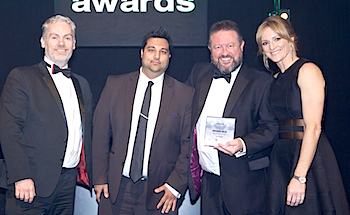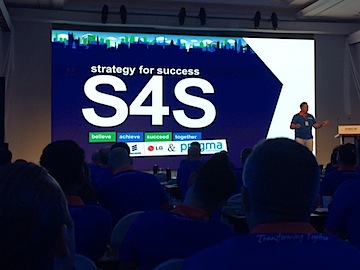London Data centre co-location specialist Volta has seen a two or three-fold jump in enquiries since the Brexit announcement.
Jon Arnold, Managing Director, told IT Europa: "No-one is sure what will happen, so companies are looking at hosting in London along with a second site in Europe.
"I can understand why businesses would choose to host their IT infrastructure within a London data centre due to the growing uncertainty around EU data regulations."
Over the past 12 months Volta has seen fast growth and due to demand is now opening a new floor in its Great Sutton Street facility. This expansion will add an extra 11,000 square feet of space, more than 400 racks, and a further 1.5 Megawatts of power to customers on that floor. It has just announced the opening of its third floor there.
Arnold sees a particular advantage in a location 15 minutes from the City and having the power capacity for growth, which has proved a limiting factor in the area in recent years. The focus on location matters, he says, and is not impressed by data centres in Slough claiming to be London-based.
It is not just the financial services industry driving the growth, however: "We are seeing a particular boom in use by media companies," Arnold added.
He has just forged links with LuxConnect in Luxembourg connecting two strategically important communication hubs in Europe. The firm has four multi-Tier (Tier II, III & IV) data centres in the Grand Duchy certified by the Uptime Institute. Several global companies from finance, entertainment and online commerce are hosted at their facilities.
LuxConnect has been recognised for its exclusive use of green electricity sourced from sustainable sources and the subsequent low carbon footprint of its facilities. "Their data centres provide a stable environment for business critical hosting with low latency connections to the major European Internet hubs," said Arnold.
Carriers present in both data centres include BT, Level 3, Cogent, Verizon and Colt. Both companies have completed due diligence on each other's facilities which can now be extended to existing and new clients and both have fitted out space available ready for early occupancy.
"Luxembourg and London are fully complementary," said LuxConnect CEO Roger Lampach. "Volta will provide a useful offering to our partners looking for space for their clients in London."

 Comms Dealer is sad to announce the sudden death of Jabra UK&I's Corporate Account Manager Fahad Quadri.
Comms Dealer is sad to announce the sudden death of Jabra UK&I's Corporate Account Manager Fahad Quadri. Yorkshire-based Lily Comms is celebrating an Ericsson-LG first as the only company in the world to win the vendor's Best Partner of the Year award four times on the trot.
Yorkshire-based Lily Comms is celebrating an Ericsson-LG first as the only company in the world to win the vendor's Best Partner of the Year award four times on the trot.